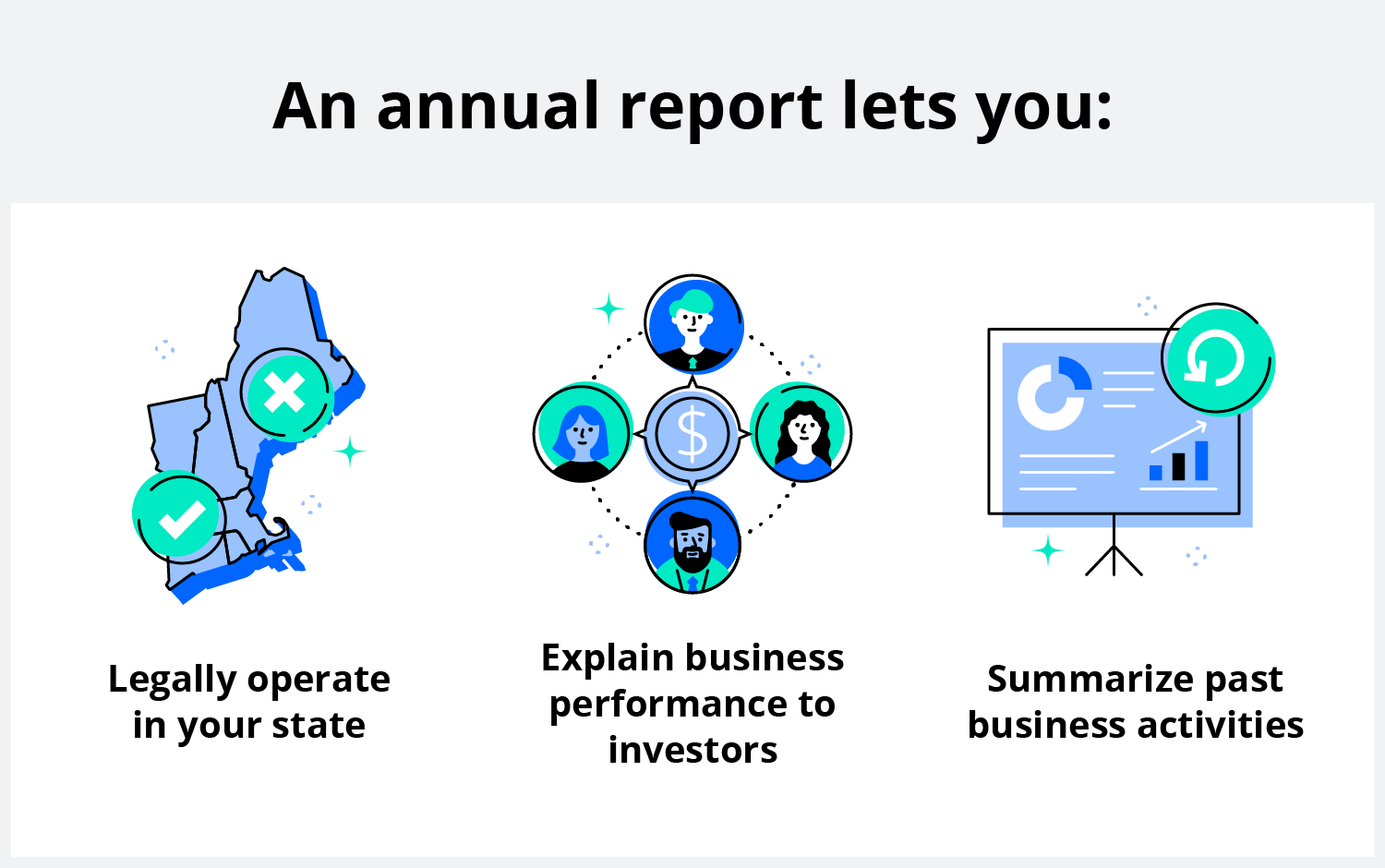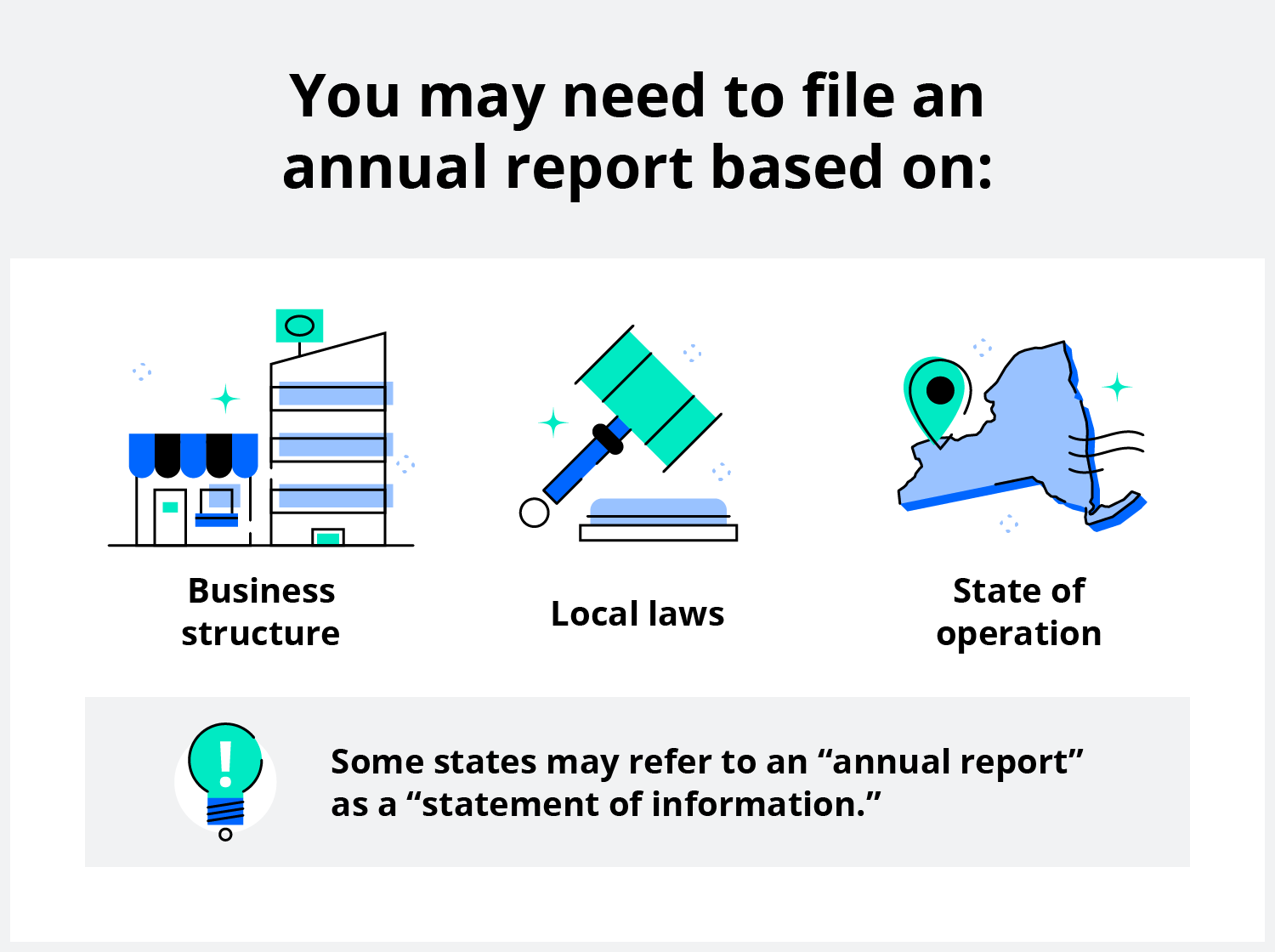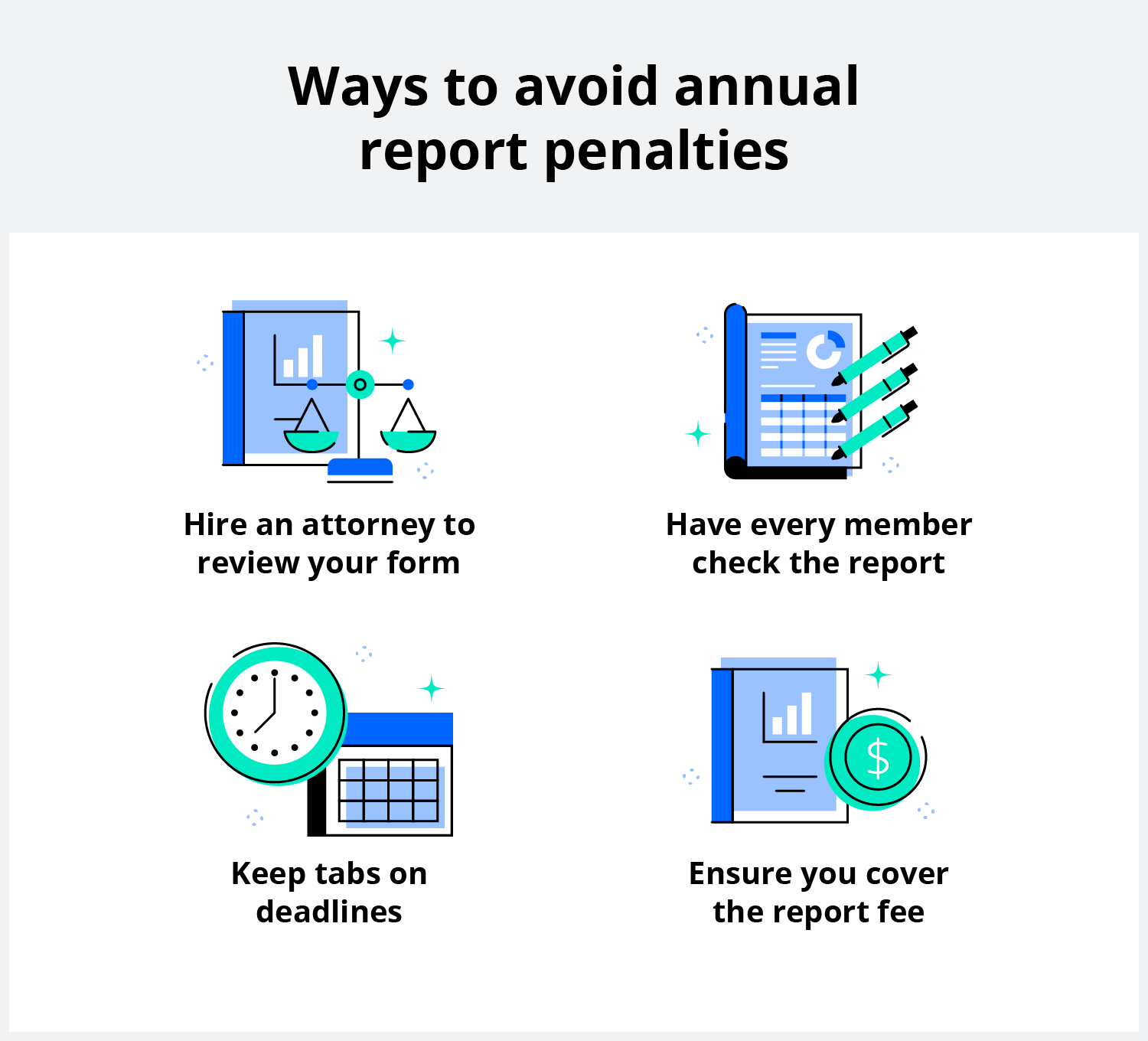
- Copywriting
- Optimization
- Content Marketing
- Email Marketing
- Social Media
- Human Resources
- Entrepreneurship
- Customer Support
- Project Management

- Best Web Hosting Services
- Best Website Builders
- Best Domain Registrars
- Cheap Web Hosting
- VPS Hosting
- Free Web Hosting
- Dedicated Web Hosting
- cPanel Web Hosting
- Reseller Web Hosting
- Shared Web Hosting
- Cloud Web Hosting
- Best Blogging Platforms
- Best Ecommerce Website Builders
- Best HR Software
- Best Online Payroll Services
- Best PEO Service Providers
- Best Background Check Companies
- Best Conference Call Services
- Best Phone Services for Small Business
- Best Remote Access Software
- Best Accounting Software
- Best Business Checking Accounts
- Top 9 Best Time and Attendance Systems – In-Depth Review
- Best HR Outsourcing Services–Do You Really Need Them?
- Top 11 Best Business Formation Services – In-Depth Review
- Top 7 Best Business Card Printing Services – In-Depth Review
- Top 12 Best Business Loans
- The Best Online Legal Services (Don’t Get Scammed)
- Top 7 Best Billing and Invoicing Software
- Top 9 Best Invoice Factoring Companies
- How to Create a Website
- How to Build a Shopify Website
- How to Make Websites Mobile Friendly
- How to Start a Blog
- How to Make Money Blogging
- Types of Blogs
- How to Start an Online Store
- How to Create An Ecommerce Website
- How to Start a Business
- How to Write a Business Plan
- How To Ask For a Review
- How to Repair Your Online Reputation
- Link Building For SEO Starter Guide
- How to Learn SEO

A Beginner’s Guide to Filing LLC Annual Reports
Most states require limited liability companies (LLCs) to file annual reports. Failure to file correctly can lead to penalties and hurt your LLC’s status with the state.
While filing LLC annual reports isn’t difficult, many business owners struggle with the requirements.
We created this guide to clear up any confusion about LLC filing guidelines. You’ll learn how to file LLC annual reports and ensure your business remains in good standing with the state.
What Are LLC Annual Reports?
An LLC annual report is a short document containing some basic details about your business. This typically includes the LLC name, business address, members, and registered agent.
The purpose of the LLC annual report is to ensure your business information is up to date for things like government correspondence, lawsuits, and more.
Several states have unique names for the LLC annual report. For example, you might see this document referred to as the “statement of information” in some jurisdictions.
The Basics of Filing LLC Annual Reports
We’ll take a closer look at the core component of filing an LLC annual report. This will help ensure you fulfill all of the appropriate requirements in your state.
State Filing Requirements
The first thing you need to do is determine whether or not you actually need to file an LLC annual report in your state. While filing LLC annual reports is mandatory in most states, it’s not a requirement across the board.
Arizona, Missouri, Texas, and New Mexico are all examples of states that do not require LLC annual reports.
Not sure if you need to file an annual report in your state? Check out this LLC tax and filing requirements guide from Nolo . Just click on your state for a fast answer—but we recommend verifying this information with your secretary of state’s website.
If you can’t find that answer with your secretary of state, refer to whichever state agency site that you used to file your initial LLC organizational documents.
A quick internet search for “annual report” plus your state can help as well. But it’s worth noting that not every state uses this term. Depending on the state, alternative names for this document include:
- Statement of Information
- Periodic Report
- Biennial Report
- Decennial Report
- Annual Statement
So if there isn’t a direct hit with your first online search, don’t assume you’re not required to file just yet. Keep digging to verify.
Filing Frequency and Annual Report Dates
Once you’ve landed on a state resource explaining whether or not you need to file an annual report, it should be fairly easy to determine when the reports are due.
It’s worth noting that the term “LLC annual report” is actually fairly broad. Not every state requires this filing once per year.
For example, California requires LLCs to file a statement of information within 90 days of filing the articles of organization during the initial LLC formation process. Then you need to file again every two years within the six months leading up to your LLC’s articles of organization anniversary month.
Suppose you have an LLC in California, and you filed your articles of organization on June 15th of an even-numbered year. Your statement of information must be filed at some point between January 1st and June 30th of each subsequent even-numbered year for the lifetime of your LLC.
In Pennsylvania, LLCs are required to file a decennial report every ten years for years ending with the numeral “1” (2011, 2021, 2031, etc.). The report essentially tells the state that your LLC continues to exist and allows you to continue using your LLC name.
As you can see from these two examples, the due dates and filing frequency can be pretty specific. It’s not always just a matter of filing a document once per year—so always refer to your state mandates.
Fees and Taxes
In most cases, there’s a fee associated with filing an LLC annual report. Like most aspects of this filing process, the exact rates will vary from state to state.
For example, the LLC statement of information filing fee in California is just $20. In Massachusetts, the annual report filing fee is $500. The rest typically fall somewhere in between.
Other states have unique fee requirements for each business. In Wyoming, annual report fees are based on your company’s assets. There’s an annual report worksheet with assets broken down into different categories, and instructions for calculating the total filing fee.
The way you file and pay can also impact the total cost of the annual report. For example, some states have different rates for online filing compared to mailing the annual report. Other states impose an additional fee for paying by credit card.
Usually, the cheaper method will be based on whatever is most convenient for the state. If your state still uses a paper system, the mail filing will likely be less expensive than filing online.
In addition to the annual report filing and fee, your state might also impose an annual LLC tax. This could be due around the same time as your annual report.
By default, LLCs provide pass-through-taxation to members—meaning the owners pay income tax on their personal returns, and the LLC itself isn’t taxed.
Let’s look at a state like Texas. We mentioned them earlier as a state that does not require an LLC annual report. However, Texas imposes a state franchise tax on most LLCs. This is just one of many states with a similar fee.
Penalties and Consequences For Not Filing LLC Annual Reports
Depending on the state, failure to file will result in more than just a slap on the wrist. You could be hit with a hefty fine or potentially lose the rights to your LLC name.
Some states might involuntarily dissolve your LLC. If this happens and your business loses its status as an LLC, you’ll also lose all liability protections. Losing your LLC status could also result in contract breaches on outstanding loans or insurance obligations.
All of these scenarios would obviously mean big problems for your business.
In most cases, your LLC may not be dissolved if you filed a week or a month late. But you’d be forced to pay a late fee. These late fees are usually significantly more than the annual fee.
For example, earlier we mentioned that the California statement of information filing fee is just $20—one of the lowest fees in the country and only due every other year. But late filings are assessed a penalty of $250.
3 Tricks For Filing LLC Annual Reports
I’ve identified a few quick tips and best practices to help you file your LLC annual reports. These tricks will help you avoid penalties and ensure you’re fulfilling state requirements.
Trick #1: Set Reminders For Filing Due Dates
Many states will send a reminder out in the mail about upcoming deadlines and annual report fees. But you can’t rely on this alone.
When you’re running an LLC, it’s easy to forget about filing a single-page document with your updated business information. So setting a reminder and marking your calendar in advance is basically a requirement—unless you have an exceptional memory.
This is especially useful for LLCs in states that have unique deadlines. It’s not always just a matter of filing the report when you pay year-end taxes.
Suppose you’re in a state where you need to file an annual report every other year during the anniversary month of filing your articles of organization. In that case, it will probably slip your mind without a reminder. So mark your calendars, and automate recurring reminders.
Trick #2: Use a Filing Service to Put Your Annual Reports on Autopilot
The easiest way to remain compliant for LLC annual reports is by using a third-party service.
Some services will file those reports on your behalf. You’ll be contacted prior to the deadline so the company can verify information about your LLC. Then they’ll just take care of everything else for you.
It’s also common for registered agent services and business formation services to assist you with this process. For example, some registered agents offer annual report compliance services. They’ll automatically send you filing instructions and reminders for deadlines.
While there’s obviously an added fee for using a service like this, it’s usually fairly inexpensive. When you weigh this cost against the potential penalties and consequences associated with not filing, it’s well worth it.
Trick #3: Don’t Forget About Other States Where You Operate
For those of you who do business in more than one state, you might need to file multiple annual reports. This is usually required in every state where your business is registered.
It’s worth noting that the filing process may not be identical to your home state.
As we’ve seen throughout this guide, requirements vary as you cross state lines. So you’ll need to repeat the steps we discussed earlier to ensure you’re compliant in each state.
That’s another reason why it’s so useful to use a third-party service. These organizations are well-versed in all 50 states, so they can help you navigate the waters in every jurisdiction where your LLC operates. This is definitely useful for businesses required to file LLC annual reports in multiple states.
What to Do Next
Now that you understand the basic concepts of LLC annual reports and how to file them, it’s time to make sure you remain compliant. First and foremost, visit your local state agency website to see if and when you need to file an annual report.
From there, you’ll need to set up an internal process for filing those reports that can be repeated each year the report is due. Check out our list of the best registered agent services , as many of these companies can assist you with this process.
We also have an in-depth guide on the best LLC services that’s extremely useful for startups and existing LLCs alike. From legal services to contracts, document filings, and more, this guide will help your LLC remain compliant.
Privacy Overview
How to file an annual report for your LLC
In many states, corporations, LLCs, and other business entities must file an annual report. Follow our step-by-step guide to learn how to file one and ensure your company stays compliant with state regulations.
Ready to start your business? Plans start at $0 + filing fees.

by Jenn Morson
Jenn is a writer who specializes in real estate, finance, health care, and education. Her words may be found in The N...
Read more...
Updated on: March 12, 2024 · 10min read
What is an annual report for an LLC?
What information goes in an annual report, who needs to file an annual report, how to file an annual report, annual report best practices, annual report considerations by state.
Limited liability companies give business owners the legitimacy and limited liability protection they need to operate, and owners must comply with state law to enjoy these benefits. While state policies vary, almost all LLCs have to file an LLC annual report with their state of operation.
Annual reports are short documents that provide updated information about your business, including the name and address of the LLC, the people who run it, and its registered agent. By keeping this information up to date and learning how to file an LLC annual report, you can stay compliant and ensure your business runs smoothly.

Annual reports for LLCs are required in many states to remain in good standing and legally operate. They list an LLC's basic legal information, members, and activities from the previous year. While they don't contain comprehensive financial information, they help measure a company's performance.
Note: Some states do not call their documents annual reports. Instead, they use another name, like a statement of information . In cases where reports come due once every other year or once every 10 years, companies file biennial reports (due every other year) or decennial reports (due every 10 years).
What is the purpose of an annual report?
Annual reports provide data on business operations for investors and outside analysts. In addition, companies send them to their state to operate there legally.

Most annual reporting covers financial data, recent activity, and owner activity. States requiring that businesses file an LLC annual report may ask for extra information, such as the names and addresses of managers. Depending on your state, you may need to include:
- Your company's legal name
- The fictitious name your business uses—also called a DBA
- The principal business office address in the state
- The registered office address
- The names and business addresses of managers and shareholders/members of the company
- All important identification numbers for your company, such as your state entity number and EIN
- The purpose of your business
- A list of authorized signatories
- Your registered agent's name and information
If your company exists as a separate legal entity, you must file annually. The following entities must file to stay in good legal standing:
- Nonprofits
- Corporations
Depending on state policy, these entities may need to file an annual report:
- Sole proprietors
- Partnerships
Tip: To find out whether your state requires an annual filing for your type of business entity, visit the state's website where you filed your organizational documents.

To file an annual report, you'll need to learn about your state's requirements. Even if it sounds daunting, most states streamline the process. The filing process generally looks like this:
1. Learn your state's requirements and the basics
Each state creates its own LLC annual report standards and practices. Depending on where you operate, specific report requirements may change, such as:
- The due dates
- Any filing fees
- The required information about your business
Check out your state's business filing website for more information about your LLC renewal requirements. It will explain when reports are due, how much it costs to file, and how you can submit them.
How often are annual reports due?
Contrary to their name, not all states require annual reports once a year. Some states require that you turn in a report yearly, while others have a biennial or even decennial timeline.
The report may be due on the anniversary of your business' formation, or your state may have a single due date for everyone. Other states require you to send an initial report within a specific period after your business' formation. Research your state's guidelines for your business type to learn how often you must provide a report so you do so on time.
2. Complete the annual business report forms
After learning the annual report requirements, business owners must complete a form. They can do this in a few easy steps:
- Obtain annual report forms. Some states mail forms to companies or their registered agent. In other cases, businesses must download the form online or request it from a state agency.
- Provide all the information your state requires. While some states only need a list of member names, business addresses, and registered agent's details, others want more information from companies. Consult your registered agent or an attorney to stay on top of requirements.
- Have all LLC members sign off on the form. For a single-member LLC, only the sole proprietor needs to sign off. For multimember LLCs, all owners must certify the document.
To ensure the information on your filing is accurate, you can include or cross-reference other documents:
- Financial information: documents including balance sheets, cash flow reports, and financial projections
- Documents on risks: forms that lay out financial risks to your LLC and how you'll avoid them
- Executive summary: a document outlining all key financial information and legal information about a business
3. File your report in your required state
Once you've completed the form, you must submit it to the state along with any required filing fee. Submission options vary by state, but most states:
- Allow you to fill out and send your annual business report electronically through the filing agency website
- Require you to print the form from a state agency's website and mail it to its office.
- Send the forms to an LLC's registered agent. After completing the forms, the agent will send them back to the state.
To maintain your business' registration and good standing in more than one state, you may have to file an LLC annual report form in each state in which you operate. To do this, you'll need to repeat the same procedure you used to file in your home state. Check with the secretary of state's office in your state for details.
4. Prepare for your next annual report deadline
Keeping up with your business' financial and legal requirements is much easier if you set yourself up for success year-round. Some states charge hefty fees to businesses that miss the filing deadline or complete using outdated or incorrect information. Additionally, failing to file a report can jeopardize your good standing with the state, causing an interruption in operations.
- Set up a reminder system for upcoming due dates on your calendar or another tool
- Keep an eye out for any policy changes in order to file annual reports to stay compliant and avoid mistakes
Help make your annual report filing process smoother by following these tips:
- Prepare for associated fees and extra costs
Factor in franchise taxes
Amend your report if you find errors, prepare for fees and extra costs.
While some states provide a free filing process, that isn't universal. States like California charge $800 to submit your annual report. In cases like these, you should budget for your report in advance.
Franchise taxes are a fee that states impose on companies for the privilege of operating within their borders. For example, California may level these taxes on a company based in Nevada with locations in Los Angeles. Some states require you to pay franchise taxes or other business taxes when you send your report.
After submitting your report, you may need to make an important change. If your LLC changes its business information or you make a mistake on the report, you need to amend it. To turn in an amended annual report:
- Use careful analysis to review your original form and determine the necessary changes. Did you misrepresent a figure, change managing principals, or move to a new location?
- Access the report through the secretary of state where you operate. Check to see if you need an amended report form or can reuse the original. If you have to reuse the original, write “amended" up top for reference.
- Get signatures from all members certifying the form is correct.
- Pay the annual reporting fee. Some states make exceptions for amendments or charge less.
Avoid annual report penalties and fines
Failing to submit your annual report or filing one with errors can lead to fines and penalties resulting from falling out of compliance. The most common annual renewal mistakes include:
- Incomplete report submissions
- Incorrect payment methods or fee amounts
- Execution errors, such as failing to sign or date the paperwork or having an unauthorized person sign
- Failing to send your annual report or filing late
You can avoid penalties by staying on task and handling your annual business report well before it's due. All LLC members should check the report for mistakes before submitting it. You can have an attorney review the form to be extra sure you're in compliance.

Every state has annual report requirements for compliance. Some states require them for all types of business entities, and others don't require annual reports at all. Some require reports for certain types of business entities but not others.
Certain states impose particular guidelines that businesses need to keep in mind. We'll break down some state-specific processes below:
Do I have to file an annual report for LLCs in New Jersey?
Unlike other states, New Jersey requires that all businesses complete an annual report to remain in compliance. This report focuses on your registered agent and address, ensuring both are up to date. The state also requires a $75 filing fee with each submission. Businesses must turn in their report by the last day of the month they completed their business formation.
Businesses that don't file for two years in a row may have their charter voided. The state may also revoke its ability to do business in New Jersey.
How do I file an annual report for an LLC in North Dakota?
North Dakota policy requires that business owners submit their LLC annual reports by mail or the FirstStop service. FirstStop is a software platform that handles business and licensing tasks for the Secretary of State. Companies can complete the process online with a credit card payment or mail their report with a check or money order payable to the "Secretary of State."
The state requires businesses to submit their report and a $50 fee by Nov. 15. If a business files after that date, the cost jumps to $100.
Do I have to file an annual report for my LLC in Mississippi?
All limited liability companies operating in Mississippi must complete an annual report with the secretary of state. Businesses can file any time between Jan. 1 and April 15. Unlike other states, Mississippi requires that owners file online. Domestic LLCs file for free, but corporations must pay $25.
How do I file an annual report for an LLC in Wisconsin?
Wisconsin sends an LLC's registered agent annual report forms before the deadline. From there, a business can send its report by mail or online through the Department of Financial Institutions (DFI). Foreign LLCs need to send in their reports via mail.
Do I have to file an annual report for my LLC in Florida?
In Florida, LLCs, corporations, limited partnerships, and limited liability limited partnerships must submit their reports by May 1. The state levies a $400 late fee for businesses that don't file in time. Florida will dissolve companies that fall out of compliance by ignoring or failing to pay the fee by the third Friday in September.
Florida businesses must complete the filing through the SunBiz website. Companies operating in Florida receive a 12-digit document number after starting an LLC in Florida . Businesses complete their report using this number as their ID in the SubBiz database. LLCs will receive this number after registering their business in Florida.
Turn annual report compliance into excellence
Ensuring your annual report meets its legal criteria does more than dodge fines. Annual reports allow you to take stock of your business and reassess your goals. By properly learning how to file an annual report for your LLC.
Writing an annual report isn't hard, but staying on top of deadlines and requirements can be challenging—especially if you do business in more than one state. An annual report service can help you fill out your report correctly and on time.
You may also like

What does 'inc.' mean in a company name?
'Inc.' in a company name means the business is incorporated, but what does that entail, exactly? Here's everything you need to know about incorporating your business.
October 9, 2023 · 10min read

How to get an LLC and start a limited liability company
Considering an LLC for your business? The application process isn't complicated, but to apply for an LLC, you'll have to do some homework first.
March 21, 2024 · 11min read

What is a power of attorney (POA)? A comprehensive guide
Setting up a power of attorney to make your decisions when you can't is a smart thing to do because you never know when you'll need help from someone you trust.
February 8, 2024 · 15min read
- Auto Insurance Best Car Insurance Cheapest Car Insurance Compare Car Insurance Quotes Best Car Insurance For Young Drivers Best Auto & Home Bundles Cheapest Cars To Insure
- Home Insurance Best Home Insurance Best Renters Insurance Cheapest Homeowners Insurance Types Of Homeowners Insurance
- Life Insurance Best Life Insurance Best Term Life Insurance Best Senior Life Insurance Best Whole Life Insurance Best No Exam Life Insurance
- Pet Insurance Best Pet Insurance Cheap Pet Insurance Pet Insurance Costs Compare Pet Insurance Quotes
- Travel Insurance Best Travel Insurance Cancel For Any Reason Travel Insurance Best Cruise Travel Insurance Best Senior Travel Insurance
- Health Insurance Best Health Insurance Plans Best Affordable Health Insurance Best Dental Insurance Best Vision Insurance Best Disability Insurance
- Credit Cards Best Credit Cards 2024 Best Balance Transfer Credit Cards Best Rewards Credit Cards Best Cash Back Credit Cards Best Travel Rewards Credit Cards Best 0% APR Credit Cards Best Business Credit Cards Best Credit Cards for Startups Best Credit Cards For Bad Credit Best Cards for Students without Credit
- Credit Card Reviews Chase Sapphire Preferred Wells Fargo Active Cash® Chase Sapphire Reserve Citi Double Cash Citi Diamond Preferred Chase Ink Business Unlimited American Express Blue Business Plus
- Credit Card by Issuer Best Chase Credit Cards Best American Express Credit Cards Best Bank of America Credit Cards Best Visa Credit Cards
- Credit Score Best Credit Monitoring Services Best Identity Theft Protection
- CDs Best CD Rates Best No Penalty CDs Best Jumbo CD Rates Best 3 Month CD Rates Best 6 Month CD Rates Best 9 Month CD Rates Best 1 Year CD Rates Best 2 Year CD Rates Best 5 Year CD Rates
- Checking Best High-Yield Checking Accounts Best Checking Accounts Best No Fee Checking Accounts Best Teen Checking Accounts Best Student Checking Accounts Best Joint Checking Accounts Best Business Checking Accounts Best Free Checking Accounts
- Savings Best High-Yield Savings Accounts Best Free No-Fee Savings Accounts Simple Savings Calculator Monthly Budget Calculator: 50/30/20
- Mortgages Best Mortgage Lenders Best Online Mortgage Lenders Current Mortgage Rates Best HELOC Rates Best Mortgage Refinance Lenders Best Home Equity Loan Lenders Best VA Mortgage Lenders Mortgage Refinance Rates Mortgage Interest Rate Forecast
- Personal Loans Best Personal Loans Best Debt Consolidation Loans Best Emergency Loans Best Home Improvement Loans Best Bad Credit Loans Best Installment Loans For Bad Credit Best Personal Loans For Fair Credit Best Low Interest Personal Loans
- Student Loans Best Student Loans Best Student Loan Refinance Best Student Loans for Bad or No Credit Best Low-Interest Student Loans
- Business Loans Best Business Loans Best Business Lines of Credit Apply For A Business Loan Business Loan vs. Business Line Of Credit What Is An SBA Loan?
- Investing Best Online Brokers Top 10 Cryptocurrencies Best Low-Risk Investments Best Cheap Stocks To Buy Now Best S&P 500 Index Funds Best Stocks For Beginners How To Make Money From Investing In Stocks
- Retirement Best Gold IRAs Best Investments for a Roth IRA Best Bitcoin IRAs Protecting Your 401(k) In a Recession Types of IRAs Roth vs Traditional IRA How To Open A Roth IRA
- Business Formation Best LLC Services Best Registered Agent Services How To Start An LLC How To Start A Business
- Web Design & Hosting Best Website Builders Best E-commerce Platforms Best Domain Registrar
- HR & Payroll Best Payroll Software Best HR Software Best HRIS Systems Best Recruiting Software Best Applicant Tracking Systems
- Payment Processing Best Credit Card Processing Companies Best POS Systems Best Merchant Services Best Credit Card Readers How To Accept Credit Cards
- More Business Solutions Best VPNs Best VoIP Services Best Project Management Software Best CRM Software Best Accounting Software
- Manage Topics
- Investigations
- Visual Explainers
- Newsletters
- Abortion news
- Coronavirus
- Climate Change
- Vertical Storytelling
- Corrections Policy
- College Football
- High School Sports
- H.S. Sports Awards
- Sports Betting
- College Basketball (M)
- College Basketball (W)
- For The Win
- Sports Pulse
- Weekly Pulse
- Buy Tickets
- Sports Seriously
- Sports+ States
- Celebrities
- Entertainment This!
- Celebrity Deaths
- American Influencer Awards
- Women of the Century
- Problem Solved
- Personal Finance
- Small Business
- Consumer Recalls
- Video Games
- Product Reviews
- Destinations
- Airline News
- Experience America
- Today's Debate
- Suzette Hackney
- Policing the USA
- Meet the Editorial Board
- How to Submit Content
- Hidden Common Ground
- Race in America
Personal Loans
Best Personal Loans
Auto Insurance
Best Auto Insurance
Best High-Yields Savings Accounts
CREDIT CARDS
Best Credit Cards
Advertiser Disclosure
Blueprint is an independent, advertising-supported comparison service focused on helping readers make smarter decisions. We receive compensation from the companies that advertise on Blueprint which may impact how and where products appear on this site. The compensation we receive from advertisers does not influence the recommendations or advice our editorial team provides in our articles or otherwise impact any of the editorial content on Blueprint. Blueprint does not include all companies, products or offers that may be available to you within the market. A list of selected affiliate partners is available here .
What is an LLC annual report and where to file
Alana Rudder

Bryce Colburn
“Verified by an expert” means that this article has been thoroughly reviewed and evaluated for accuracy.
Updated 1:52 p.m. UTC Oct. 24, 2023
- path]:fill-[#49619B]" alt="Facebook" width="18" height="18" viewBox="0 0 18 18" fill="none" xmlns="http://www.w3.org/2000/svg">
- path]:fill-[#202020]" alt="Email" width="19" height="14" viewBox="0 0 19 14" fill="none" xmlns="http://www.w3.org/2000/svg">
Editorial Note: Blueprint may earn a commission from affiliate partner links featured here on our site. This commission does not influence our editors' opinions or evaluations. Please view our full advertiser disclosure policy .

baona, Getty Images
What is an annual report for an LLC?
An LLC annual report is a form states use to gather updated information on businesses operating within the state. Some states assign other names to annual report forms, including a statement of information or, if the report is not filed annually, a biennial, periodic or decennial report. Not only do these reports update the state on your business’s most recent information, but it can also be used to update investors or other stakeholders.
The following information is often included in an annual report:
- The business’s legal name.
- The LLC’s address.
- The name and address of your business’s registered agent.
- The name, address and contact information of the person who should be the recipient of important tax documents.
- The names of all current members, officers, directors or managers.
- The LLC’s employer identification number (EIN) .
- Debit or credit card information to pay the filing fee.
Featured LLC service offers
Zenbusiness.

Via ZenBusiness’ website
Free version available
Lowest published package price

Via LegalZoom’s website
Northwest Registered Agent

Via Northwest’s website
How much are annual report filing fees?
Most states require you to pay a filing fee when you submit your annual report. This report’s filing fees range from $0 to $4,500, depending on the state, type of business and the business’s activities.
Here are some examples of filing fees:
- In Kentucky , the annual report filing fee is $15 each year.
- In Hawaii , the annual report filing fee is $12.50 if you file online or $15 by mail.
- In Colorado , annual reports are called periodic reports; their filing fee is $50 due each year.
- In California , an annual report is called a statement of information, and the filing fee is a minimum of $800 yearly. The minimum fee is subject to increase based on your business’s annual earnings.
Where to file an annual report for an LLC
Most states require you to file your annual report with the secretary of state or the division of corporations. Generally, you will receive a reminder from the state of when your annual report is due with instructions on where to file the report. In most states, business owners can file their reports online or by mail.
Here are some examples of where to file annual reports in different states:
- In Arkansas , you can file your LLC annual report with the Arkansas Secretary of State. To do so, you must opt to file your franchise tax online ; at that point, the system will walk you through the process of filling out the annual report form and paying the filing fee (called the franchise tax in Arkansas).
- In Maine , you must file your annual report with the Maine Secretary of State. You can do so online by visiting Maine’s annual report filing page . You can either sign up for an account or submit the report as a non-subscriber.
- In California , you must file your annual report with the California Secretary of State. You can do so using its bizfile online system .
To find out where to file an annual report in your state, Northwest Registered Agent offers a state-by-state annual report filing guide .
However, if you would like assistance filing your annual report, many LLC formation companies offer these services. For example, ZenBusiness provides annual report filing services for $100 plus state filing fees. Similarly, LegalZoom offers annual report filing services for $99 plus state filing fees.
Read our best registered agent services guide for a more comprehensive list of companies that can help file your annual report.
Penalties for not filing
The penalties for not filing an annual report vary by state. Some states will accept late filings but charge a late fee. However, more often, states will dissolve your business if you do not file on time.
Here are a few examples of how states handle late annual report filings:
- In Kentucky , if you’re late filing your annual report, your business will be in bad standing with the state. At the 60-day mark, you will receive a notice asking you to file your annual report within 60 days. If you do so, your business will revert to good standing with the state without a penalty. However, if you fail to file in the allotted time, Kentucky will administratively dissolve your business or revoke your authority to do business in the state.
- In Connecticut , if you do not file your annual report on time, you will not be able to obtain a certificate of legal existence for your company, and the state can administratively dissolve your business. Without a certificate of legal existence, your company’s ability to perform key business tasks, such as accessing business funding, may be impacted.
- In New York , if you do not file your biennial statement on time, your business will be listed as past due in the New York Department of State’s records. This means that, if you need a certificate of status or a status letter to conduct business tasks, such as obtaining business funding from an investor or a bank, you will be denied.

Keeping track of annual report due dates
Each state has its own requirements for when annual reports are due. Some require all annual report submissions on the same date each year, while others vary the date based on your business’s date of formation. And some states only require you to file every other year or once every five or ten years.
The good news is that most states send a reminder by mail or email when your annual report due date is approaching. However, if you want to plan ahead, Bizfilings.com offers a due date toolkit that includes the due dates for annual report filings by state. It also contains detailed information, such as the filing due date by entity type and the frequency in which you’re required to submit your report.
Another way of managing business filing dates is by hiring a registered agent service that offers a filing calendar and reminders. For example, Swyft Filings and incorporate.com provide notifications for all upcoming annual report filing deadlines with their registered agent services.
Blueprint is an independent publisher and comparison service, not an investment advisor. The information provided is for educational purposes only and we encourage you to seek personalized advice from qualified professionals regarding specific financial decisions. Past performance is not indicative of future results.
Blueprint has an advertiser disclosure policy . The opinions, analyses, reviews or recommendations expressed in this article are those of the Blueprint editorial staff alone. Blueprint adheres to strict editorial integrity standards. The information is accurate as of the publish date, but always check the provider’s website for the most current information.

Alana is the deputy editor for USA Today Blueprint's small business team. She has served as a technology and marketing SME for countless businesses, from startups to leading tech firms — including Adobe and Workfusion. She has zealously shared her expertise with small businesses — including via Forbes Advisor and Fit Small Business — to help them compete for market share. She covers technologies pertaining to payroll and payment processing, online security, customer relationship management, accounting, human resources, marketing, project management, resource planning, customer data management and how small businesses can use process automation, AI and ML to more easily meet their goals. Alana has an MBA from Excelsior University.
Bryce Colburn is a USA TODAY Blueprint small business editor with a history of helping startups and small firms nationwide grow their business. He has worked as a freelance writer, digital marketing professional and business-to-business (B2B) editor at U.S. News and World Report, gaining a strong understanding of the challenges businesses face. Bryce is enthusiastic about helping businesses make the best decisions for their company and specializes in reviewing business software and services. His expertise includes topics such as credit card processing companies, payroll software, company formation services and virtual private networks (VPNs).

How to start a small business: A step-by-step guide
Business Eric Rosenberg
Annual Filing for an LLC: Everything You Need to Know
Depending on the state, LLC filing fee is filed when the company is first formed and annual filing reports and filing fees are submitted thereafter. 3 min read updated on February 01, 2023
Requirements for annual filing for LLC will depend on your state. You must file an LLC filing fee when your company is first formed. You might have to submit annual filing reports and filing fees thereafter.
What Is an LLC Annual Report?
An annual LLC report (also known as an Annual Informational Report) is a mandatory document that a limited liability company provides to the state. This document informs the state about the company's management situation, its activity, and other basic facts.
The following is the type of information you will have to provide:
- The name of your business
- Your business's federal identification number
- Where you LLC is headquartered
- The type of business you're involved in
- The names and addresses of the LLC's owners
- Who to send legal documents to (pertaining to regulations and court cases)
How Do LLCs File Annual Reports?
You will have to follow your state's rules when filing an LLC report, but regulations are reviewed on a yearly basis. Check with your secretary of state or appropriate regulatory agency to obtain up-to-date filing information. The rules in your state will guide the following:
- Whether you are required to file an annual report: Most states require an annual report , but states like Delaware, Ohio, and South Carolina do not.
- How often you must file with your state: States like California, Iowa, and Indiana require LLCs to file biennial reports. In Pennsylvania, LLCs need to file reports every ten years.
- Some states set the same deadline for all LLCs.
- In select states, LLCs may have to file their reports in a certain range of months .
- The exact anniversary date of their registration
- The first day of the LLC's anniversary month
- The last day of the LLC's anniversary month
- Whether you will need to fill out other documents: Depending on your state and the type of the LLC you run, you might have to file a specific form. You also must submit documents when you make certain changes to your LLC, such as changing the company's name or dissolving the company.
It's generally easy to fill out these forms because most states offer online filing services. If your state doesn't have an online filing option, you will have to fill out and return physical forms to your secretary of state.
Do LLCs Have to Pay Yearly Fees?
While researching your state's rules regarding LLC annual reports, you should find out about the types of fees you must pay. In most states, companies must also submit an annual fee along with their reports. In states like Texas, which does not collect income taxes of any kind, LLCs might have to pay franchise taxes when filing annual tax reports.
- Franchise tax reports must contain information that includes the name of the LLC, the type of business it engages in, and details about the company's finances. The report serves a dual function because it allows an LLC to figure out how much it owes the state in franchise taxes.
- If you can file your company's report electronically, you can also pay the accompanying fee at the same time with a credit card. Physical forms can be sent along with a check or money order.
- Make sure you pay the appropriate fee with your report. In the United States, the average annual fee for LLCs is $101, but you may pay nothing, as little as $10, or hundreds of dollars.
What Happens if an LLC Doesn't File When It Should?
LLCs must file yearly reports to state governments, so they can remain in good standing . The failure to file LLC reports and/or taxes regularly and on time can have dire consequences for you and your company, which include:
- The forfeiture of the company's LLC status and protections
- A forfeiture of the company's registration
- A forced shutdown of the company
- A loss of loans and lines of credit
- Personal consequences, like the loss of your operating license
If you need help with your annual LLC filings, you can post your legal need on UpCounsel's marketplace. UpCounsel accepts only the top 5 percent of lawyers to its site. Lawyers on UpCounsel come from law schools such as Harvard Law and Yale Law and average 14 years of legal experience, including work with or on behalf of companies like Google, Menlo Ventures, and Airbnb.
Hire the top business lawyers and save up to 60% on legal fees
Content Approved by UpCounsel
- LLC Reporting Requirements
- LLC Annual Fees
- Cost of LLC By State
- Do I Need to Renew My LLC Every Year? Everything to Know
- S Corp Annual Report
- What Is Annual Report Filing
- LLC Process
- LLC Annual Report WA
- Massachusetts LLC Annual Report
- Nevada Annual Report Filing Fee
We earn commissions if you shop through the links below. Read more
LLC Annual Report
Back to LLC Guides
How to File an Annual Report for Your LLC
Written by: Carolyn Young
Carolyn Young is a business writer who focuses on entrepreneurial concepts and the business formation. She has over 25 years of experience in business roles, and has authored several entrepreneurship textbooks.
Edited by: David Lepeska
David has been writing and learning about business, finance and globalization for a quarter-century, starting with a small New York consulting firm in the 1990s.
Published on January 5, 2022 Updated on March 12, 2024

An annual report, sometimes known as a statement of information, for a limited liability company (LLC) needs to be filed with your state to keep your LLC in good standing .
Most states require an annual LLC report, which simply verifies your business information and that you’re still doing business.
- What Information Is Required in the Annual Report?
Every state’s form and requirements are different but most annual reports will require:
- The business name
- The business’s primary address
- Names of members and managers as well as their addresses
- The business purpose or nature of the business
- Your registered agent’s name, address, and contact information
- List of authorized signers for the business
If any of this information has changed since you originally formed your LLC, you should update it in your annual report. Your state may also require an amendment to change your LLC information.
- Filing the Annual Report
Filing an annual report is usually relatively simple, but not in all cases. This handy guide walks you through the process to ensure an easy filing and the continued smooth operation of your business.
1. Determine if an annual report is required in your state
Every state has its own reporting requirements. Some states require an annual report, others a biennial report. In most states, a fee is involved, though Ohio requires no annual report or fee. Check with your state for its requirements. Reports are generally filed with the Secretary of State, so you should be able to find the information on their website.
To find out the requirements for filing the annual report in your state, choose a state from the list below. You will find all the specifics and information you need for your business.
Choose Your State
- connecticut
- massachusetts
- mississippi
- new hampshire
- north carolina
- north dakota
- pennsylvania
- rhode island
- south carolina
- south dakota
- west virginia
2. Complete the annual report form
You can generally complete the annual report form online, though every state’s annual report form is different. Sometimes minimal information is required, while other states require more details, including member information.
3. Pay any required filing fee and file the form
Again, state annual report fees vary and range from free to an $800 annual tax in California. You can usually pay the annual fee online by credit card and file the report electronically.
4. File an annual report for the other states where you’re registered to do business
If you’re doing business in other states, you must be registered as a foreign LLC in those states and follow their reporting requirements as well.
An annual report is simple to file, although, in most states, it comes with a fee. Be sure to check your state’s website for specific requirements and due dates. Failing to file or file on time can result in penalties, or in some cases, the dissolution of your LLC.
- Annual Report FAQs
Each state has its own annual or biennial report deadline, which is often the anniversary date of your LLC’s formation. Check with your state for deadlines and requirements.
If you don’t file an annual report, you may incur additional fees and penalties, and your LLC could even be administratively dissolved.
Reporting requirements vary by state. In some states, you’re required to file a report every year, while in other states, a report is required every two years, or more. Check with your state for requirements.
Leave a Reply Cancel reply
Your email address will not be published. Required fields are marked *
Save my name, email, and website in this browser for the next time I comment.
Subscribe to Our Newsletter
Featured resources.

10 Best LLC Formation Services
Carolyn Young
Published on August 22, 2022
If you’re starting an LLC, the business entity formation process is one of the first and most important hurdles. This step can be terribly complex ...

How to File Articles of Organization for Your LLC
Published on December 30, 2021
If you’re starting a business, you may be considering forming a limited liability company (LLC) and have heard that you need to file articles ofor ...

Can You Live in One State and Own a Business in Another?
Martin Eckler
Published on July 20, 2021
Do some digging into the owners of industry and you will find the vast majority do not live in the state where they own theirbusinesses. ItR ...
No thanks, I don't want to stay up to date on industry trends and news.
What is an LLC Annual Report? What's Included & How to File

The limited liability company (LLC) entity type provides many advantages—like reducing the owners’ personal liability, and providing flexibility in tax classification and management structure.
Once you’ve established LLC status, you’ll need to comply with ongoing LLC compliance requirements to maintain LLC protections and avoid any penalties against your business. In most states, this includes filing an LLC annual report.
What is an LLC annual report?
An LLC annual report is a brief overview of key facts about a limited liability company (LLC). It typically includes business contact information, contact information for owners (called “members” of the LLC), and a record of any major activities (such as change in ownership, business purpose, or location) during a given reporting period.
States use annual reports to maintain updated information about all businesses transacting in the state. The purpose of the report is to ensure that they are able to contact you (or your registered agent ) as needed, e.g, to deliver routine government correspondence or or to notify you of a legal action. Some states also use LLC annual report information to determine whether your business owes franchise taxes .
Filing processes, fees, and frequency vary by state. Depending on your state, your LLC annual report might also go by a different name. State-specific names can include the following:
- Annual statement
- Statement of information
- Periodic report
- Biennial statement (due every two years)
- Decennial statement (due every ten years)
What information appears in an LLC annual report?
Although specifics vary by state, most LLC annual reports require the following information:
- Business name
- Primary office address
- A brief statement of business purpose
- Your EIN and any other state-issued registration numbers
- Registered agent information (if applicable)
- Addresses of offices in the state (if applicable)
- Fictitious name (if applicable)
- The names and addresses of members and managers
Some states will also request financial information, such as liabilities and assets located in the state.
Do all LLCs need to file an annual report?
As of June 2023, Arizona, Missouri, New Mexico, Ohio, and South Carolina don’t require LLCs to file annual reports. All other states require filling, although in some cases reports are only due every two or ten years.
If you don’t file your LLC annual report on time, the state can impose a fine and your business can lose good standing , preventing you from opening a business bank account , taking out a loan, or registering to do business in another state. Continued non-compliance can also cause the state to dissolve your LLC, resulting in a loss of the liability protections the entity structure provides.
When are LLC annual reports due?
Although LLC annual reports generally contain the same information state to state, due dates vary.
Some states require business owners to file annually, some every other year, and some once a decade. States also determine filing deadlines differently—some require you to file in a certain month, and others base your due date on when you originally registered to do business in the state.
This can make deadlines easy to miss—particularly for multi-state business owners, who have reporting obligations in multiple states. Imagine that you formed your LLC in Delaware in 2019, and over the next two years, you registered to do business in 14 other states. You might end up with eight annual reports due in January, one each in June, July, and August, three due in November, and one due every other December.
Using a tool like Mosey ’s compliance platform can help you stay on top of these deadlines. Mosey automates tracking requirements, sends alerts for key tasks, and can even file annual reports for your business.

Here are a few state-specific filing deadline examples.
Iowa Biennial Report
If you are a foreign LLC registered to do business in Iowa, you are required to file a biennial report. You must file your first biennial report between January 1st and April 1st of the first odd-numbered year following the calendar year in which your company was authorized to transact business in Iowa. Subsequent biennial reports must be filed between January 1st and April 1st of each following odd-numbered year.
Michigan Annual Statement
Every LLC must file an Annual Statement by February 15th. However, a foreign LLC authorized to transact business in Michigan after September 30th does not have to file an annual statement in the year immediately after its authorization.
Virginia Registration Fee
As a foreign LLC qualified to do business in Virginia, you must pay an Annual Registration Fee to the State Corporation Commission (SCC) every year. The payment is due on the last day of your foreign qualification anniversary month.
Wyoming Annual Report
To maintain your business, you must file an LLC Annual Report with the Secretary of State every year on the first day of the anniversary month of formation.
How much does it cost to file an LLC annual report?
The cost of filing an LLC annual report varies by state. California and Massachusetts are among the most expensive flat-fee states—California charges $820 for annual filing, and Massachusetts charges $500. The least expensive states include Idaho, Minnesota, Mississippi, and Texas, which don’t charge for filing at all. Colorado, Nebraska, Hawaii, Kentucky, New York, and Utah also all charge filing fees under $20.
In some cases, LLC annual report filing fees can depend on the number of LLC members or other business factors. As an example, Tennessee charges $300 for an LLC with six or fewer members and adds an additional $50 for every additional member, and Alabama assesses a minimum fee of $50 but calculates exact costs based on number of members, business value, and annual income.
How to file an annual report in 5 steps
Follow these steps to file your annual reports and maintain compliance with state laws.
1. Research state requirements
Research due dates, filing processes, annual reporting fees, and reporting requirements in every state in which you are registered to do business.
2. Budget for taxes and fees
LLC annual reporting fees vary widely. Some states also require you to file franchise taxes along with your annual report. Determine what you’ll owe, and make sure that you’ll have enough cash on hand to cover tax and reporting expenses, noting that some states allow payment via credit card for an additional fee.
3. Obtain key forms
Obtain key forms from the Secretary of State. Some states accept online annual reports. States that require hard copies typically make forms available for download or send physical forms to your registered agent. Remember to factor in mailing time if you send a physical copy—filing deadlines are often based on date of receipt rather than postmark.
4. Prepare your report
Assemble the necessary information and prepare to file your report. If your state requires financial information, cross-reference your data with financial statements to ensure accuracy.
5. File your report and plan for the future.
File your report with the Secretary of State and pay all applicable fees. Once you file, it’s also a good idea to double-check the deadlines for your next annual report. If you aren’t using a compliance platform to stay on top of requirements, set a calendar reminder to initiate the process.
Mosey’s platform features active monitoring and notifications to help you stay on top of annual report filing for your LLC. Import your incorporation date or foreign qualification date for each state and Mosey will calculate your annual report filing requirements and deadlines automatically. They will be added to your account for easy management and Mosey will alert you when they become upcoming tasks to complete. Mosey keeps it all organized by showing you the requirements, when they are due, and who is doing what. Mosey will even automate filing the annual report for you—just click a button and we’re on it.
Read more from Mosey:
- With Paid Family and Medical Leave: 2023 Guide
- What Is Multi-State Payroll?
- What Is Workers Compensation & How Does It Work?
- Exiting a PEO: Reasons, Considerations, and Checklist
- What Is Tax Nexus? Nexus Types & Determining Tax Nexus
- What Is Foreign Qualification? Considerations & How to Qualify
- What Is an Annual Report? What’s Included & When to File
- What Is a Registered Agent & Why Would You Need One?
- Employee vs. Contractor: Understanding the Difference
- What Is an LLC (Limited Liability Company)?
- How Many Pay Periods in a Year? Employer’s Guide
Review your compliance risks, free.
Use our compliance checkup to learn more about what to do to be compliant in any state! It's free and takes less than five minutes.
Ready to get started?
Sign up now or schedule a free consultation to see how Mosey transforms business compliance.

Mosey has everything you need to get compliant in all 50 states in one, easy to use, platform.

IMAGES
VIDEO
COMMENTS
In Pennsylvania, LLCs are required to file a decennial report every ten years for years ending with the numeral “1” (2011, 2021, 2031, etc.). The report essentially tells the state that your LLC continues to exist and allows you to continue using your LLC name. As you can see from these two examples, the due dates and filing frequency can ...
Allow you to fill out and send your annual business report electronically through the filing agency website. Require you to print the form from a state agency's website and mail it to its office. Send the forms to an LLC's registered agent. After completing the forms, the agent will send them back to the state.
Where to file an annual report for an LLC. Most states require you to file your annual report with the secretary of state or the division of corporations. Generally, you will receive a reminder ...
Here are the 5 main steps involved in preparing an LLC annual report. 1. Determine Filing Deadline and Requirements. Understanding your state’s specific filing deadline and requirements is the initial step. Different states have varying deadlines, forms, and additional documentation requirements.
Instead, an LLC annual report provides basic information and facts about your company, such as the names and addresses of your registered agent and directors and managers. It’s a comprehensive report on the company’s activities throughout the preceding year. Annual reports are intended to give shareholders and other interested people ...
LLCs must file yearly reports to state governments, so they can remain in good standing. The failure to file LLC reports and/or taxes regularly and on time can have dire consequences for you and your company, which include: The forfeiture of the company's LLC status and protections. A forfeiture of the company's registration.
LLC Annual Report Filing Requirements. Most states require you to file a report on a regular basis to update your LLC's information. For example, you usually have to confirm or update the addresses of your registered agent and principal office. Each state has different rules about: whether you must file an LLC report.
2. Complete the annual report form. You can generally complete the annual report form online, though every state’s annual report form is different. Sometimes minimal information is required, while other states require more details, including member information. 3. Pay any required filing fee and file the form.
How to file an annual report in 5 steps. Follow these steps to file your annual reports and maintain compliance with state laws. 1. Research state requirements. Research due dates, filing processes, annual reporting fees, and reporting requirements in every state in which you are registered to do business. 2.
Step 3: File your annual report. Now you’re ready to actually fill out and submit your annual report. Every state has slightly different methods, such as online filing, dropping off paper forms in person, or filing by mail or fax. Simply pick your favorite filing method, fill in the required information, and submit it.